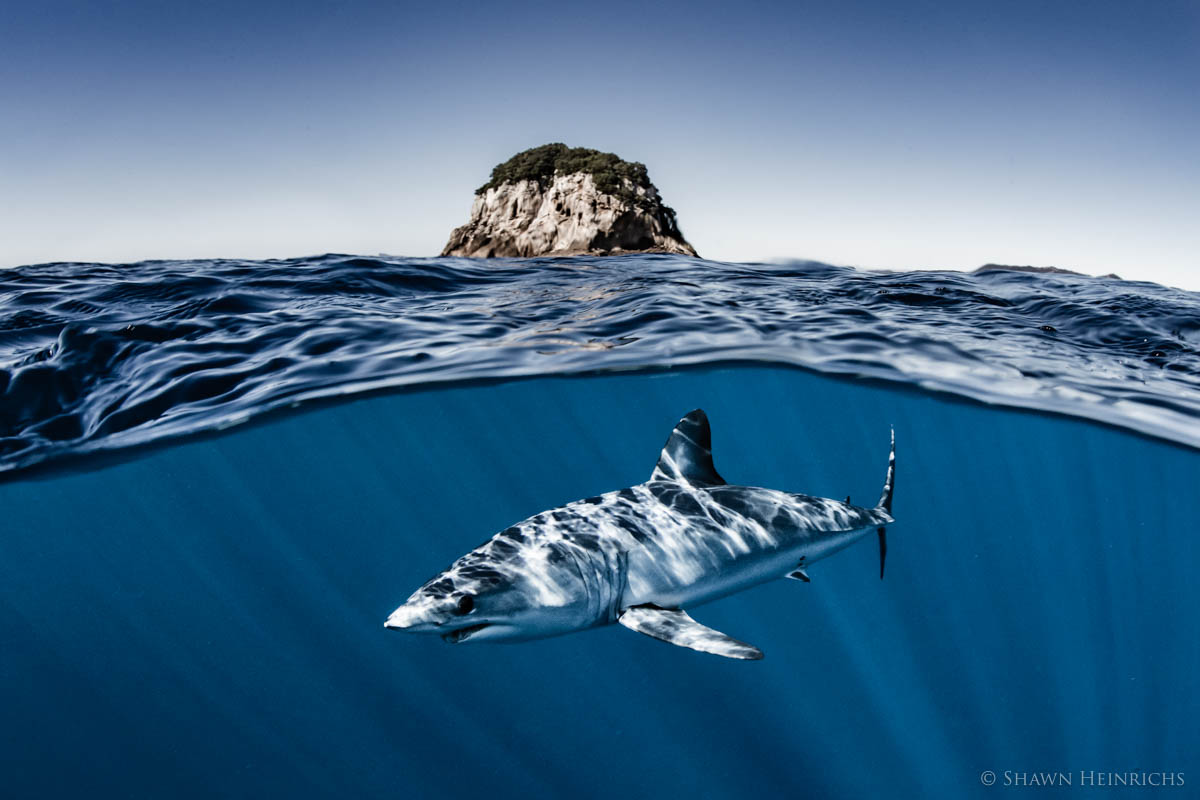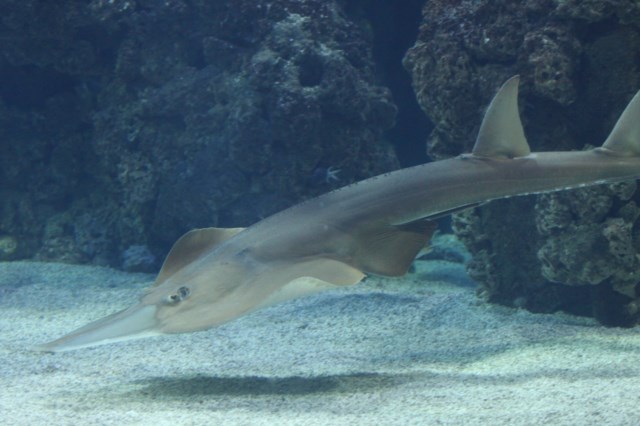A mako shark swims near shark biologist Riley Elliott.
By Hussain Rasheed Hassan, Minister of Environment, Government of the Maldives and Luke Warwick, Director of Shark and Ray Conservation at the Wildlife Conservation Society (WCS)
The picture is increasingly clear. Sharks and rays are on the brink of extinction. A deeply unsustainable global trade in fins, and increasingly meat, is leading to over 25 percent of these ancient predators being listed as threatened with extinction. If we don’t act now and establish strong global protections, we will lose these animals, and the unique role they play to keep our oceans thriving and healthy.
The ubiquitous and unsustainable shark fin trade, and a lack of domestic management of catch or bycatch has, for decades, allowed fisheries to remove critical populations of sharks and rays from the world’s oceans. Some countries have acted, like the Maldives, by designating a ‘Shark Sanctuary’ throughout the country’s Exclusive Economic Zone (EEZ). Shark fishing was banned in the Maldives in 2010. Since then all commercial fishing and trade of sharks and shark products has been prohibited, with any incidentally caught released alive wherever and whenever possible.
Global action has been worryingly slow, but there is hope. The Convention on International Trade in Endangered Species of Wild Fauna and Flora (CITES), in 2013 and 2016, passed measures on 20 species of sharks and rays that limited any trading to sustainable levels.
CITES listings for sharks and rays have, for the first time established a legally binding driver for a previously unregulated trade. With CITES’ strong compliance mechanisms, countries have taken notice and started to protect or manage their sharks and rays. Through CITES trade regulation, it may be possible that the very trade that has pushed sharks and rays to the edge could be the rope that allows us to pull them back from near extinction.
Mako Sharks
And now, CITES is considering protections for an additional 18 species of sharks and rays this August during CITES’ 18th Conference of the Parties (CoP)in Geneva, Switzerland. Fifteen of the species were recently listed as Critically Endangered by the IUCN and two more listed as Globally Endangered. The protection proposals include all giant guitarfish and wedgefish, unusual flattened relatives of sharks. The fins from these species command the highest value of all in the fin trade, around a thousand US dollars a kilogram and known as the ‘king of shark fins’. The shortfin and longfin mako sharks, the cheetahs of the ocean that hunts tuna at 60 mph, whose populations have been devastated by unstainable longline fishing, are also being considered for protection this August.
The Wedgefish
This round of protections under consideration has the most support to date with over 60 governments pledging formal support, including the Maldives. But we need two-thirds of governments in attendance to ensure adoption. As a country dependent on revenue from fishing and as food to supply our nation’s population, the Maldives understands it can be challenging to support, yet for our long-term health and well-being, we need to establish better and more sustainable management fishing practices to benefit all of us.
We are calling on all governments to join in protecting sharks and rays across the globe for the health and livelihood of our oceans and the people and species that depend on sharks and rays to survive. This might be our last chance for these species, and to continue the momentum the last six years has started – as we finally begin to get ahead of the curve, and curb the unsustainable trade and lack of management that threatens these ancient species’ very survival.
Giant Guitarfish
The Maldives signed the Convention in 2013 and is committed to using it to send a message to other countries globally, that strong, rapid action is needed to save sharks and rays.




